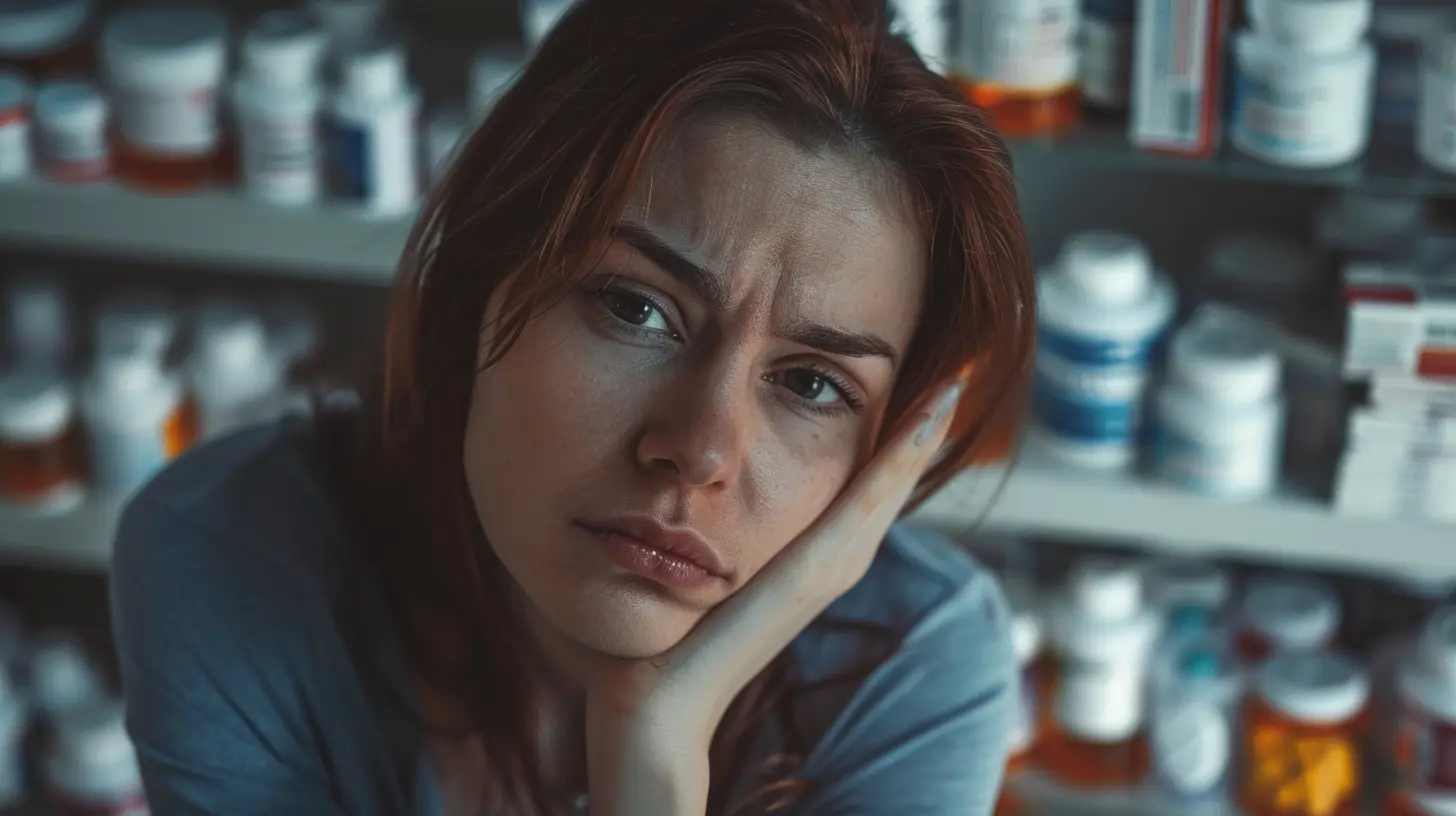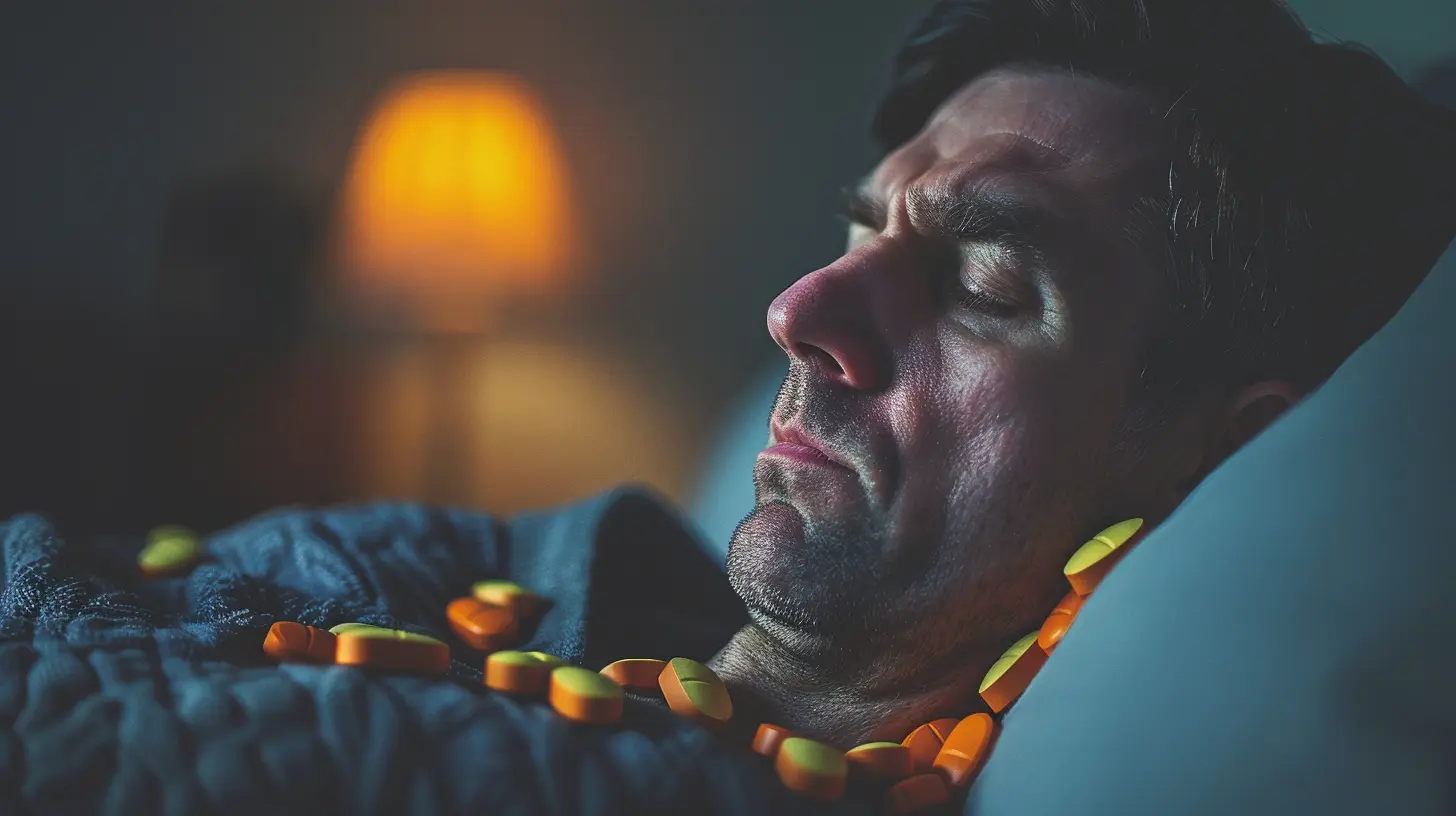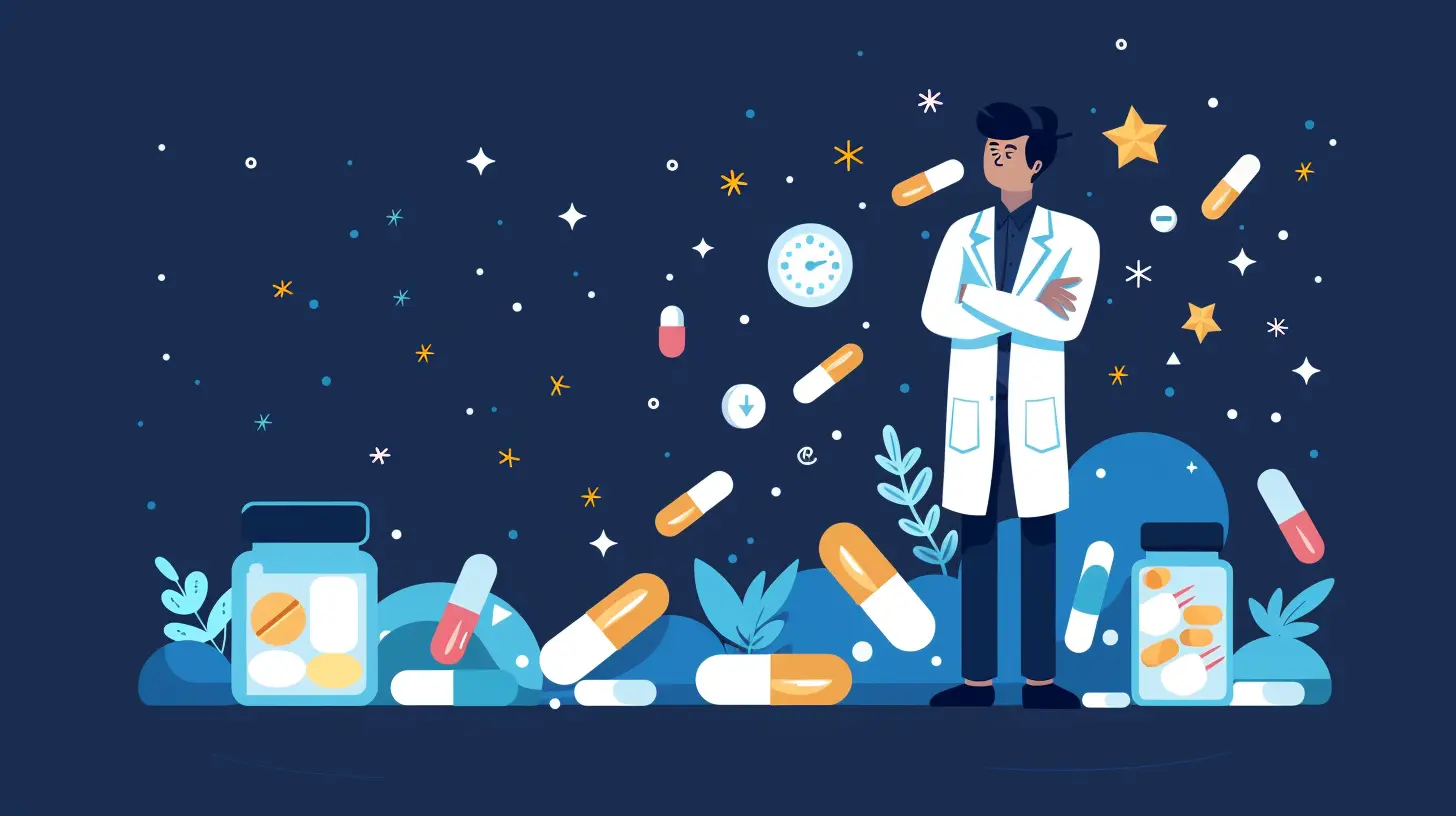How Medication Affects Sleep: What to Discuss with Your Doctor
10 November 2025
Ah, sleep. That elusive, magical unicorn we all chase after—only to be rudely awakened by a snore, a nightmare, or plot twist: a medication that’s supposed to help but ends up throwing your sleep schedule into a blender.
Yep, you read that right. Whether it’s a prescription pill meant to save your sanity or an over-the-counter helper that promised sweet dreams, meds can seriously mess with your sleep. And before you panic or swear off modern medicine altogether, take a deep breath (no, not the kind a meditation app recommends) and let’s talk about what’s really happening.
We'll break it all down, crack a few jokes, and maybe even get you prepped for your next appointment with your doctor—because trust us, you’re going to want to have a little chat.
First Things First: Is Your Medication Messing With Your Sleep?
Let’s start with a fun little game. Are you:- Waking up at 2 a.m. wide-eyed like you just drank three espressos?
- Struggling to fall asleep despite being absolutely exhausted?
- Experiencing super vivid dreams that feel more like Hollywood productions than REM-cycle normalcy?
- Snoring like a freight train when you never used to?
- Feeling groggy in the morning even if you technically had a “full night’s sleep”?
If you mentally checked “yes” to any (or all) of these, guess what? Your medication might be the party crasher in your dreamland.
The Sleep–Medication Love-Hate Relationship
Spoiler alert: Medications and sleep have a complicated relationship status. Some drugs are built to help you sleep. Others have the annoying side effect of keeping you awake. And then there's the wild bunch that doesn’t know what it wants—it just throws off your sleep cycle because, well, why not?Let’s break it down.
1. Medications That Keep You Up (AKA The Night Owls)
Some medications are more hyped than your toddler after consuming sugar. They raise your heart rate, boost your alertness, and basically tell your body, “Sleep? Nah, let’s think about every embarrassing thing you’ve ever done instead.”Here’s a short list of common culprits:
- Antidepressants – Ironically, some can spike your energy instead of calming your brain.
- Stimulants for ADHD – Yep, they do what they say: stimulate. Great for focus, terrible for zzz’s.
- Steroids – These can make you feel like a superhero—but not the kind that rests.
- Decongestants – You might breathe better, but sleeping soundly? Not in the forecast.
- Beta-blockers – Used for blood pressure, but guess what? They can block your melatonin production too. Rude.
2. Medications That Knock You Out (But Not Always in a Good Way)
These sneaky meds help you sleep—or so they claim. The reality? They might leave you feeling like you’ve been drop-kicked by an elephant when morning comes.Common examples:
- Sleep aids – Over-the-counter or prescription, many don’t give you restful sleep. Instead, it’s like being sedated at a bad party.
- Opioids – Often prescribed for pain, they can seriously mess with your REM cycle and reduce nighttime oxygen levels.
- Antihistamines – Hello, allergy relief. Goodbye, natural sleep rhythms. They can cause grogginess or hangover-like symptoms.
- Anti-anxiety meds – These can sedate your worries, sure. But they also sedate your brain’s ability to go through proper sleep stages.
3. Medications That Stir Up Wild Dreams
Oh, the nighttime drama! Some medications don’t prevent sleep, but they do turn it into an IMAX feature film.Blame these dream-weavers:
- SSRIs (a type of antidepressant) – These can intensify dreams or cause nightmares.
- Parkinson’s meds – Known for vivid dreams and even sleepwalking. Sleep meets Cirque du Soleil.
- Blood pressure meds – Some can cause night terrors. Because managing your blood pressure isn’t stressful enough already, right?
4. The Timing Trap: When You Take Your Meds Matters
Here’s a plot twist: sometimes it’s not what you’re taking, but when you’re taking it. Timing is everything—like whether you drink coffee at 8 a.m. or 8 p.m. (Spoiler: Don’t.)A simple adjustment in schedule—say, taking your meds in the morning instead of right before bed—can be the difference between blissful shut-eye and a 3-hour staring contest with your ceiling.
So, before tossing that med bottle out the window, talk to your doctor about timing.
Wake Up Call: What You Really Need to Discuss with Your Doctor
Okay, here’s the part where we get serious for a second (yes, it happens). If your medication is affecting your sleep, don’t just suffer through it.Your doctor isn’t a psychic. Sure, they might have fancy degrees and white coats, but they still need you to speak up. So, what should you actually ask?
🛌 “Could This Med Be Messing with My Sleep?”
Simple. Direct. No fluff. Ask if your current med list includes any notorious sleep-disruptors. If yes, ask if there’s an alternative that’s just as effective but less… sleep-ruining.🕗 “Can I Take It at a Different Time?”
Remember the timing trap? Your doc might suggest adjusting when you take the medication to minimize its impact on your sleep.☕ “Should I Avoid Certain Foods, Drinks, or Habits?”
Some medications play extra badly with caffeine, alcohol, or late-night snacking. You might be unknowingly combining forces for the perfect storm of insomnia.😴 “What Sleep Aids Are Safe for Me?”
If you’re considering taking a sleep aid to counteract your other medications (oh, the irony), always, always get the green light from your doctor first. Some combinations are an absolute no-go.🧘 “Could Lifestyle Changes Help Too?”
Sometimes getting better sleep isn’t only about medications. Asking your doctor whether tweaks to your daily routine can help—like practicing good sleep hygiene or adding a bit of exercise—might do wonders.Real Talk: Stop Playing Doctor Google
Look, we’ve all been there. One late night of sleeplessness and we’re deep in an internet rabbit hole thinking we’re dying, cursed, or both. But guess what?Dr. Google doesn’t have your medical history.
Online advice is general, but you’re a very specific human being with a unique cocktail of circumstances, medications, and bedtime routines. So, while Googling “Why can’t I sleep on Prozac?” feels productive, nothing beats a real, honest convo with your healthcare provider.
Sleep Hygiene: Your Secret Weapon
Sure, we’re chatting about meds, but let’s sprinkle in a little tough love: your sleep hygiene might need a glow-up. If you’re doom-scrolling TikTok in bed or sipping wine at 10 p.m., your meds aren’t your only problem.Here are some simple but golden rules:
- Keep a consistent sleep schedule (even on weekends—yes, we see you).
- Make your bedroom a sleep sanctuary—not an office, not a movie theater, not a snack bar.
- Keep devices out of bed. If your phone is your sleeping buddy, it's time for a breakup.
- Dim the lights 1-2 hours before bed. Your brain needs to know it’s night-night time.
- Limit naps. Hate to break it to you, but that 3-hour “rest” at 4 p.m. is likely doing more harm than good.
Combine these habits with a strategic med schedule, and you’re on your way to snooze-town.
When Your Doctor Visits Become Sleep Therapy
No joke—your doctor’s visit could double as a therapy session for your sleep life if you ask the right questions. Come prepared (maybe even jot down your questions ahead of time) and leave with a plan instead of more confusion.And if your doctor brushes off your sleep complaints? Find another one. You deserve to sleep like the majestic human you are, not toss and turn like an overcooked spaghetti noodle.
TL;DR Summary (Because We Get It… You’re Tired)
- Meds can make you sleep too much, too little, or just plain weird.- Some common meds affect how deeply and how well you sleep.
- Timing, dosage, and even your lifestyle play big roles.
- Talk to your doctor. Like, really talk.
- Don’t self-medicate or rely on sketchy internet advice.
- Treat sleep like the priority it is—not a luxury.
Sweet Dreams (For Real This Time)
So there you have it—your 101-level guide to how medication might be puppeteering your sleep behind the scenes. The key takeaway? Don’t blindly accept groggy mornings or midnight anxiety spirals as your “new normal.”Be your own advocate. Open your mouth at those appointments. Ask the weird questions. Because trust me, your doctor has heard weirder—and a good night’s sleep is totally worth it.
Now go forth and reclaim your pillow throne like the bedtime royalty you were born to be.
all images in this post were generated using AI tools
Category:
Sleep DisordersAuthor:

Angelo McGillivray
Discussion
rate this article
1 comments
Allison Simmons
Sleep better with the right approach! Don’t hesitate to chat with your doctor about meds—your sweet dreams are worth it!
November 12, 2025 at 5:30 PM

Angelo McGillivray
Absolutely! Discussing medication with your doctor is crucial for addressing sleep issues and ensuring you find the right approach for restful nights.


